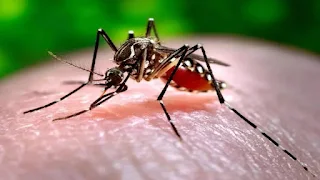dengue (break-bone fever) is a viral infection that spreads from mosquitoes to people. It is more common in tropical and subtropical climates.
Most people who get dengue will not have symptoms. But for those who do, the most common symptoms are high fever, headache, body aches, nausea, and rash. Most will get better in 1–2 weeks. Some people develop severe dengue and need care in a hospital...
Precautionary Measures for Dengue Prevention
Dengue fever, transmitted by mosquitoes, poses a significant health risk in many parts of the world. While there is no specific treatment or vaccine for dengue, taking preventive measures can significantly reduce the risk of infection. Here are some precautionary measures:
1. **Eliminate Mosquito Breeding Sites**: Mosquitoes that spread dengue typically breed in standing water. Regularly empty and clean containers that can hold water such as flower pots, buckets, and bird baths. Cover water storage containers tightly.
2. **Use Mosquito Repellent**: Apply insect repellent containing DEET, picaridin, or oil of lemon eucalyptus to exposed skin and clothing. Reapply as directed.
3. **Wear Protective Clothing**: When outdoors, wear long-sleeved shirts, long pants, socks, and shoes to minimize exposed skin.
4. **Use Mosquito Nets**: Use bed nets if your sleeping area is not screened or air-conditioned, especially during the day when Aedes mosquitoes are most active.
5. **Keep Doors and Windows Closed or Screened**: Ensure that windows and doors are fitted with screens to prevent mosquitoes from entering indoor spaces.
6. **Stay in Air-Conditioned or Screened Accommodations**: If possible, choose accommodations that are air-conditioned or have window and door screens to keep mosquitoes outside.
7. **Limit Outdoor Activities During Peak Mosquito Hours**: Aedes mosquitoes, which transmit dengue, are most active during early morning and late afternoon. Minimize outdoor activities during these times if possible.
8. **Support Community Efforts**: Participate in community mosquito control programs. These may include spraying insecticides and reducing mosquito breeding sites in public areas.
9. **Seek Medical Attention Promptly**: If you develop a high fever, severe headache, pain behind the eyes, joint and muscle pain, rash, or bleeding, seek medical attention immediately. These could be symptoms of dengue fever.
10. **Dispose of Solid Waste Properly**: Proper disposal of garbage and solid waste can help reduce mosquito breeding sites in urban areas.
By adopting these precautionary measures, individuals can help reduce the spread of dengue fever and protect themselves and their communities from this potentially serious illness.
Diagnosis
Diagnosing dengue fever can be difficult because its signs and symptoms can be easily confused with those of other diseases — such as chikungunya, Zika virus, malaria and typhoid fever.
Your doctor will likely ask about your medical and travel history. Be sure to describe international trips in detail, including the countries you visited and the dates, as well as any contact you may have had with mosquitoes.
Your doctor may also draw a sample of blood to be tested in a lab for evidence of infection with one of the dengue viruses.
Treatment
No specific treatment for dengue fever exists.
While recovering from dengue fever, drink plenty of fluids. Call your doctor right away if you have any of the following signs and symptoms of dehydration:
- Decreased urination
- Few or no tears
- Dry mouth or lips
- Lethargy or confusion
- Cold or clammy extremities
The over-the-counter (OTC) drug acetaminophen (Tylenol, others) can help reduce muscle pain and fever. But if you have dengue fever, you should avoid other OTC pain relievers, including aspirin, ibuprofen (Advil, Motrin IB, others) and naproxen sodium (Aleve). These pain relievers can increase the risk of dengue fever bleeding complications.
If you have severe dengue fever, you may need:
- Supportive care in a hospital
- Intravenous (IV) fluid and electrolyte replacement
- Blood pressure monitoring
- Transfusion to replace blood loss


Comments
Post a Comment
If you have any doubts, please let me know